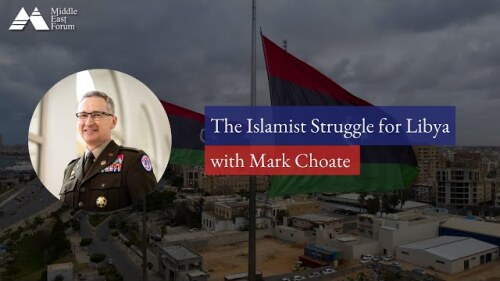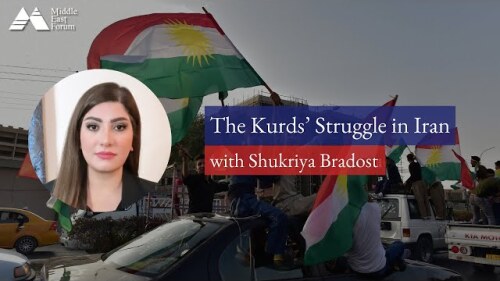Middle East Forum Radio host Gregg Roman spoke on December 11 with Endy Zemenides, the executive director of the Hellenic American Leadership Council (HALC), a national Greek-American advocacy and public education organization, about the recent accord between Turkey and Libya’s Government of National Accord (GNA) that demarcates a maritime economic exclusion zone stretching between their coasts and lays the groundwork of Turkish military intervention in the Libyan civil war.
This move is the culmination of regional ambitions that Turkish President Recep Tayyip Erdoğan has been quite open about, warned Zemenides, quoting verbatim from his 2011 electoral victory speech: “Believe me, Sarajevo won today as much as Istanbul, Beirut won as much as Izmir, Damascus won as much as Ankara. Ramallah, Nablus, Jenin, the West Bank, Jerusalem won as much as Diyarbakir.”
Endy Zemenides |
But Turkey’s flouting of international law in the eastern Mediterranean tracks back to its 1974 invasion of Cyprus, where thousands of Turkish soldiers are now garrisoned in the north. With Erdogan’s recent strengthening of anti-access and area denial capabilities at its Cyprus facilities, Zemenides likened the island to “a permanent aircraft carrier in the eastern Mediterranean.”
Turkey’s constant violations of Greek and Cypriot sovereignty has Athens allocating a large portion of its defense budget to protecting itself against a fellow NATO member. Turkey’s thousands of airspace violations bring increased risk of a ship being sunk or a plane being shot down escalating into a shooting war within NATO. “The winners of that are going to be Russia, Iran, and China.”
Dozens of Turkish-made BMC Kirpi armored vehicles in the port of Tripoli, May 2019. |
Erdogan’s declaration of military support for Libya’s GNA in its civil war against Khalifah Haftar, the secular autocratic commander of the Libyan National Army (LNA) is creating a situation “very much like Syria,” Zemenides cautioned. “This is becoming a proxy war with Turkey and Qatar on one side and the Saudis, Emiratis, and the Russians backing Haftar.”
The Turkey-GNA maritime agreement, which prompted Greece to lodge a complaint with the UN, is “a legal fiction which makes several Greek islands ... not exist,” said Zemenides. He compared it to illegal actions China has taken in the South and East China seas.
Such unilateralism flies in the face of growing energy cooperation among other littoral states of the eastern Mediterranean following the discovery of major offshore natural gas resources more than a decade ago, culminating in the formation of the seven-member Eastern Mediterranean Gas Forum (EMGF) in Cairo at the beginning of 2019. “You had the Egyptians and the Israelis, the Greeks, the Cypriots, the Jordanians, and the Palestinians all at the same table, all saying, ‘Let’s work on rules to bring stability and prosperity and a rules-based structure to this region through this energy resource.’” Naturally, that’s the last thing Erdogan wants to see.
Zemenides argued that it is more important than ever that Washington “show Turkey it cannot act with impunity against American national security, intelligence, and economic interests.” He highlighted two important ways it can do this.
First, the U.S. should hold Erdogan accountable for violating the 2017 Countering American Adversaries Through Sanctions Act (CAATSA), which imposes secondary sanctions on countries that conduct “significant transactions” with Russia’s arms industry. Turkey’s purchase of Russia’s S-400 air defense missile system over American objections earlier this year clearly falls into this category, but the Trump administration has dragged its feet implementing CAATSA with respect to Turkey. “Without the imposition of the sanctions that are required, Turkey believes that it’s going to get away with this.”
Second, the U.S. should work to bolster the Eastern Mediterranean Gas Forum. The EMGF, he noted, is reminiscent of the European Coal and Steel Community (ECSC), which “was brought together because of energy” in the early 1950s and provided the foundation for what became the European Union. “Just like [the U.S.] encouraged and provided some political and security cover for those early European institutions,” he explained, “it can do the same for these Eastern Mediterranean institutions – create reliable, predictable allies – and signal to Turkey that ‘this train is leaving the station without you.’”










